Nigeria Chibok girls shown alive in Boko Haram video
TO SEE VIDEOS:
- 14 April 2016
- Africa
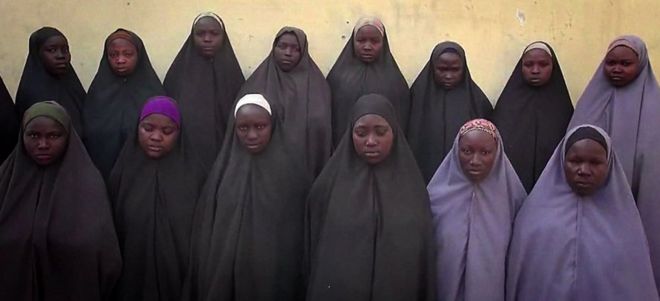 CNN
CNN
Friends and family members of Nigerian schoolgirls kidnapped two years ago say they have identified some of them in a new video obtained by CNN.
The footage, apparently filmed in December, shows 15 girls in black robes identifying themselves.
The girls were taken from a school in the town of Chibok by members of the Islamist group Boko Haram.
Relatives of the girls marched in the capital, Abuja, on Thursday, the second anniversary of their abduction.
The kidnapping of the 276 girls triggered the global social media campaign #BringBackOurGirls, involving US first lady Michelle Obama and a host of celebrities.
But despite their efforts, most of the girls are still missing.
The footage of the girls is the first to be seen since May 2014, when around 100 of them were shown in a video.
It was broadcast after being handed to the Nigerian government.
- Desperate call to missing daughter’s phone
- Updates from Bring Back Our Girls campaign
- What we know
- Torment of a freed Boko Haram 'bride'
- Risks of military intervention
The BBC's Martin Patience in Abuja says hundreds of parents marching on Thursday blame the previous government for doing nothing when the abduction took place, as well as the current administration for failing to devote enough resources to the search.
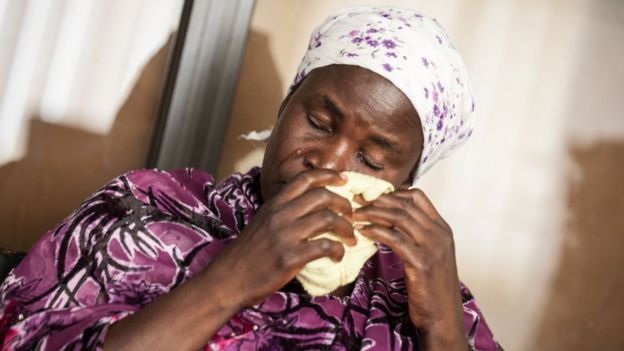 AFP
AFP
Boko Haram militants attacked the government boarding school in Borno state on 14 April 2014, seizing the girls who had gone there to take exams.
Shortly afterwards they released a video of them and demanded a prisoner exchange.
Analysis: Mansur Liman, BBC Hausa editor
The video is too short for any meaningful comment on the state of health of the girls, but the 15 that appeared looked well fed and do not seem to show any sign of distress. However, their captors may have selected them from among the 219 girls still in captivity specifically to give that impression.
It has always been clear that Boko Haram regard the Chibok girls as high-value and a potential negotiating tool. In the past they have indicated their desire to exchange some of the girls with some of their commanders arrested by the government.
Recently, the military authorities in Nigeria have been claiming victory over the insurgents, pointing to the destruction of various militant camps spread across the group's stronghold in north-eastern Nigeria and the killing of many members of the group.
However the video indicates that despite these successes, the group has been able to hold secure locations where they can hide the girls, even if only in small groups.
These safe havens may provide many of the group's leadership an environment in which they can lie low and regroup at a later time, as they did after the premature victory declared by the Nigerian government against Boko Haram in 2009.
The video has however raised other questions as to how talks are proceeding over the girls' release - what is the motive for releasing the video to a media house in the middle of negotiations that have the trust of all involved?
Boko Haram's leader, Abubakar Shekau, said the girls had converted to Islam and he threatened to force them into marriage with his fighters or sell them into slavery.
As the months passed, about 57 students managed to escape but at least 219 are still missing.
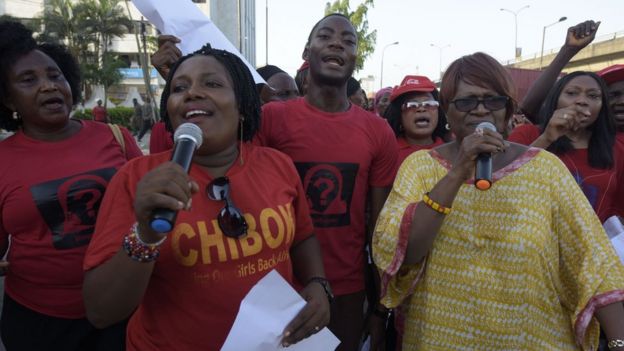 PIUS UTOMI EKPEI
PIUS UTOMI EKPEI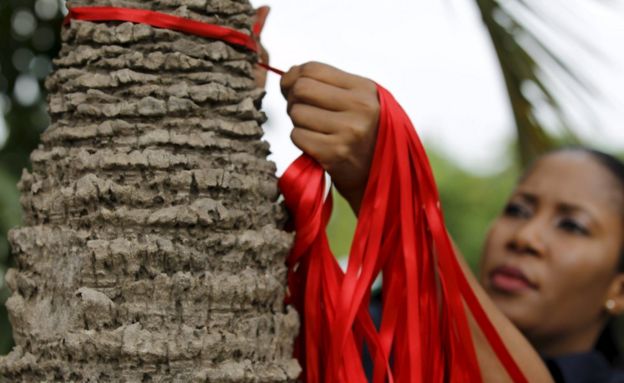 Reuters
Reuters
The latest video, apparently filmed on Christmas Day 2015, shows the girls pleading with the Nigerian government to co-operate with militants on their release.
They said they were being treated well but wanted to be with their families.
Two other mothers, Rifkatu Ayuba and Mary Ishaya, also said they had recognised their daughters in the video while a third mother, Yana Galang, identified five of the missing girls, Reuters news agency reports.
They were shown the video at a screening organised by local officials in Maiduguri, capital of Borno state.
"They were definitely our daughters... all we want is for the government to bring back our girls," said Mrs Galang.
Amnesty International says about 2,000 children have been abducted by Boko Haram since 2014. Many are used as sex slaves, fighters and even suicide bombers.
Although the militants are still launching attacks, the Nigerian army has made progress in its fight against them over the past year, our correspondent adds.
It has retaken towns and villages controlled by Boko Haram and has also freed hundreds of women and children held captive.
Boko Haram at a glance:
 Screengrab
Screengrab- Founded in 2002, initially focused on opposing Western-style education - Boko Haram means "Western education is forbidden" in the Hausa language
- Launched military operations in 2009
- Thousands killed, mostly in north-eastern Nigeria, hundreds abducted, including at least 200 schoolgirls
- Joined so-called Islamic State, now calls itself IS's "West African province"
- Seized large area in north-east, where it declared caliphate
- Regional force has retaken most territory last year
- The town that lost its girls
- Torment of a freed Boko Haram 'bride'
- 'How I almost became a suicide bomber'
- 'Boko Haram took my children'
- Who are Nigeria's Boko Haram Islamists?
- Nigeria community divided over Boko Haram
- On patrol with Nigerian soldiers battling Boko Haram
- Surviving Nigeria's Boko Haram
- Islamic State ties broaden Boko Haram threat
- Using football to tackle Boko Haram
- Boko Haram: What next for the rescued?
- Profile: Boko Haram leader Abubakar Shekau
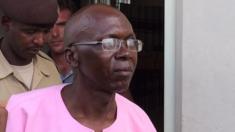
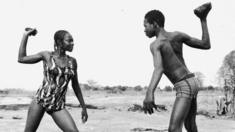

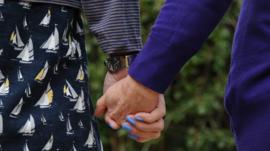


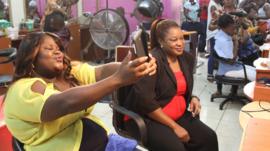
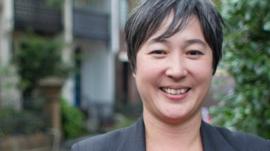
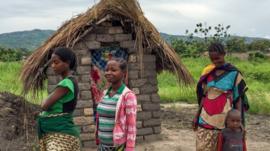

No comments:
Post a Comment
Please leave a comment-- or suggestions, particularly of topics and places you'd like to see covered